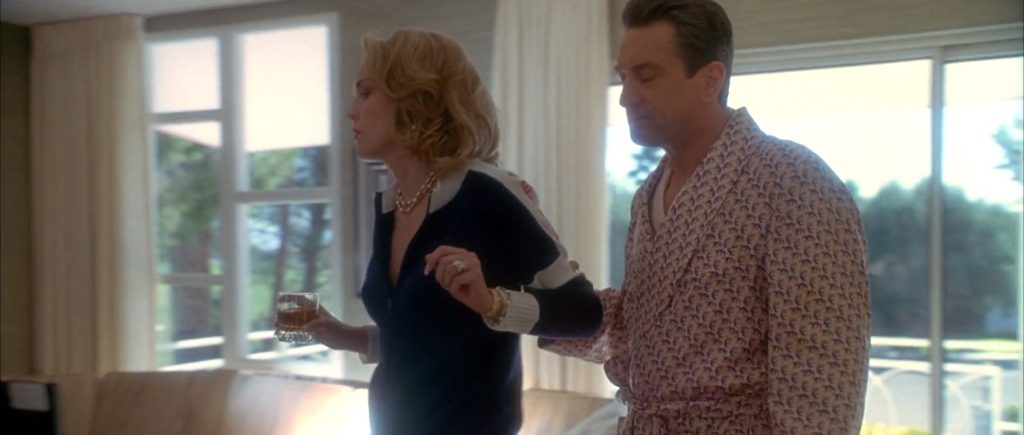“The Departed” (2006): Scorsese’s Concession – Film Review

“The Departed”: Scorsese’s Concession to Mainstream Tropes
Martin Scorsese’s 2006 film “The Departed,” while lauded by critics and the Academy, can be seen as a departure from the director’s more substantive work, veering towards crowd-pleasing spectacle rather than the gritty, nuanced storytelling that defined his earlier films. While it finally garnered Scorsese an Oscar for Best Director, a recognition long overdue, “The Departed” feels like a concession to mainstream tastes rather than a testament to his artistic vision.
Plot: A Game of Cat-and-Mouse, Laden with Stereotypes
“The Departed,” a remake of the 2002 Hong Kong film “Infernal Affairs,” is set in Boston and follows the intertwined lives of two moles – one infiltrating the police on behalf of the mob (Matt Damon’s Colin Sullivan) and the other infiltrating the mob on behalf of the police (Leonardo DiCaprio’s Billy Costigan). While the premise promises a complex psychological thriller, the execution often falls into the realm of clichés and overwrought stereotypes.
The narrative, rather than delving deeply into the psychological and moral complexities of its characters, often settles for surface-level drama and predictable plot twists. The film’s heavy reliance on violence and crude language, while intended to add grit, often comes across as gratuitous and lacking in subtlety.
Behind the Scenes: Crafting a Commercial Hit
In making “The Departed,” Scorsese and the production team aimed to create a film that was both commercially viable and critically acclaimed. The casting of high-profile actors like DiCaprio, Damon, Jack Nicholson, and Mark Wahlberg was a strategic move to draw audiences, but it also contributed to a sense of Hollywood gloss that permeates the film.
The Boston setting was chosen for its rich history of organized crime, but the portrayal of the city and its culture often veers into caricature. The production details, from the set design to the cinematography, while technically proficient, lack the artistic flair characteristic of Scorsese’s earlier work.
Performances: Star Power Over Subtlety
The performances in “The Departed” are a mixed bag. DiCaprio and Damon deliver solid performances, but their characters lack the depth and complexity that could have elevated the film. Jack Nicholson’s portrayal of mob boss Frank Costello is over-the-top, teetering on the edge of parody.
The supporting cast, despite their talents, are often relegated to one-dimensional roles. The film’s focus on star power and dramatic confrontations comes at the cost of character development and narrative subtlety.
Themes: A Missed Opportunity for Deeper Exploration
“The Departed” touches on themes of identity, loyalty, and corruption, but these themes are often lost in the film’s pursuit of dramatic tension and action. The potential for a nuanced exploration of the psychological turmoil of living a double life is overshadowed by the film’s focus on conventional thriller elements.
Cultural Impact: An Oscar Winner, but at What Cost?
“The Departed” was well-received by audiences and critics, and it finally earned Scorsese an Oscar for Best Director. However, this recognition feels bittersweet. Scorsese, who had crafted masterpieces like “Raging Bull” and “Goodfellas,” was overlooked by the Academy for works that were more representative of his directorial prowess. “The Departed,” while a competent thriller, is arguably not his strongest work, raising questions about the motivations behind its acclaim.
Final Thoughts
In essence, “The Departed” is a film that, while entertaining, lacks the depth and artistry that define Scorsese’s best work. It feels like a film made to appease mainstream audiences and the Academy rather than a true representation of Scorsese’s capabilities as a filmmaker. While it succeeds as a commercial thriller, it falls short of the cinematic brilliance that one expects from a director of Scorsese’s caliber.




